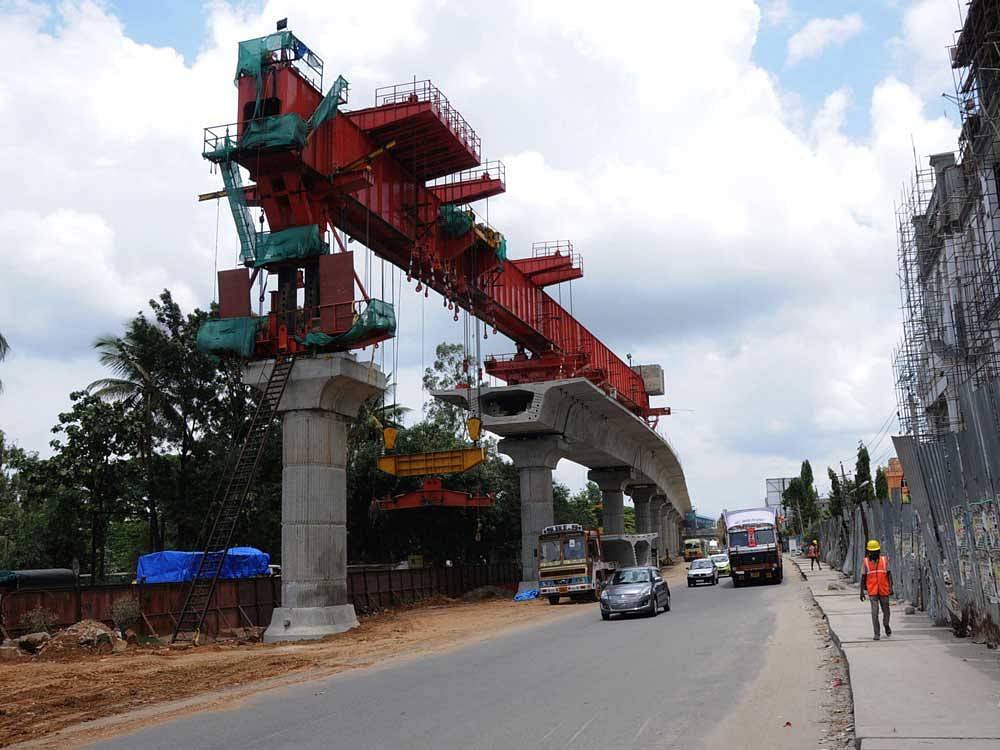
The Outer Ring Road Metro under Phase 2A will take off only after BMRCL manages to raise Rs 1,100 crore through innovative financing.
The stretch will connect Silkboard and K R Puram at a total cost of Rs 4,202 crore.
The state Cabinet, which cleared the innovative financing mechanism on Thursday, put raising of Rs 1,100 crore as a condition for starting the project work.
So far, Bangalore Metro Rail Corporation Limited (BMRCL) has raised Rs 200 crore from two companies under the mechanism and requires Rs 900 crore to begin work on the project.
The BMRCL has raised Rs 251.01 crore by leasing 13 acres to IKEA India Pvt Ltd near Nagasandra Metro Station. The money will be used for the project as BMRCL's contribution.
Embassy Group and chipmaker Intel India have agreed to contribute Rs 100 crore each to BMRCL, which will be paid in instalments.
The companies will get naming rights, advertisement and retail space for 30 years besides direct access from metro platform to their campus.
As per the mechanism, each offer received by BMRCL will be treated on its own merit by entering into a memorandum of understanding followed by a legal agreement with the company.
Funding exemption
The state cabinet exempted the BMRCL's Innovative Financing mechanism from Karnataka Transparency in Public Procurements (KTTP) Act, 1999.
Innovative financing model, proposed by BMRCL, involves bringing private investment for metro projects by offering premium floor space index (FSI), betterment levies, granting of naming rights and commercial rights etc.
The Cabinet approved the mechanism and exempted it from KTTP Act noting that "each and every (investment) proposal will be unique depending on the requirement of the company and the perceived benefits accruing to them." The Cabinet also noted that no two offers will be similar and components such as land cost and varying payment schedules make it difficult to compare these offers or put them in a standard framework.
"Hence, a competitive bidding process for finalisation of the offers is not feasible," it noted.